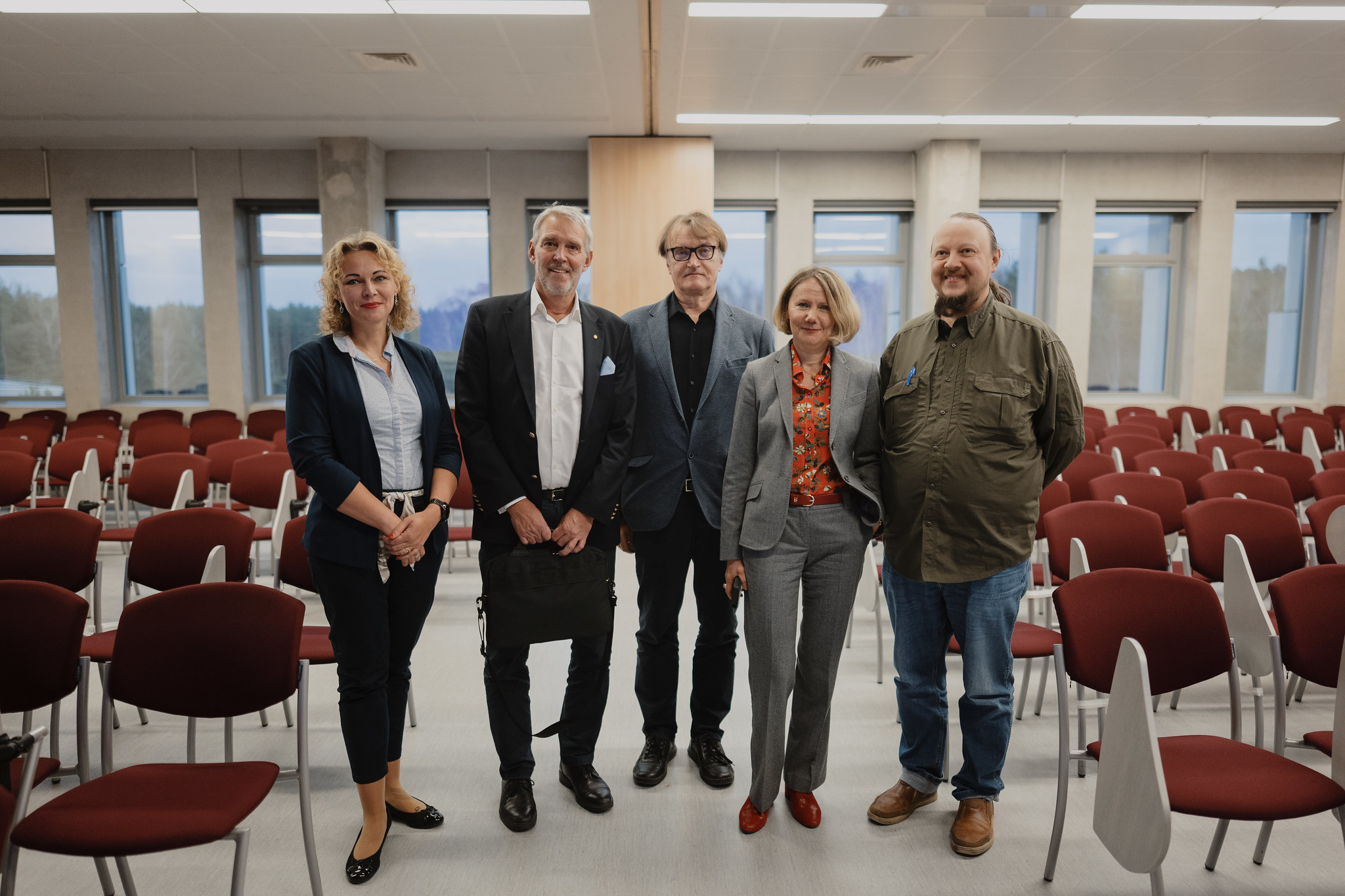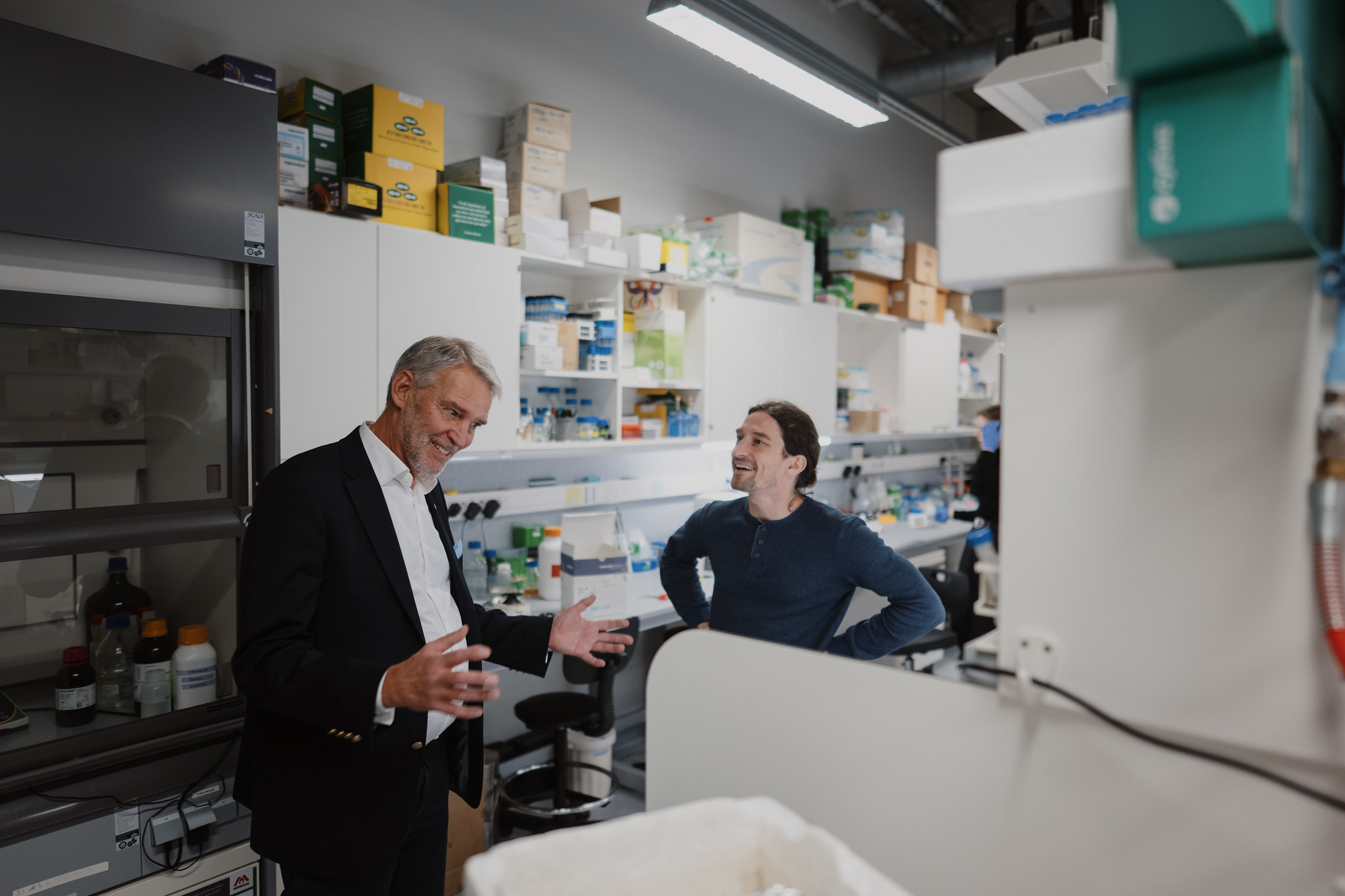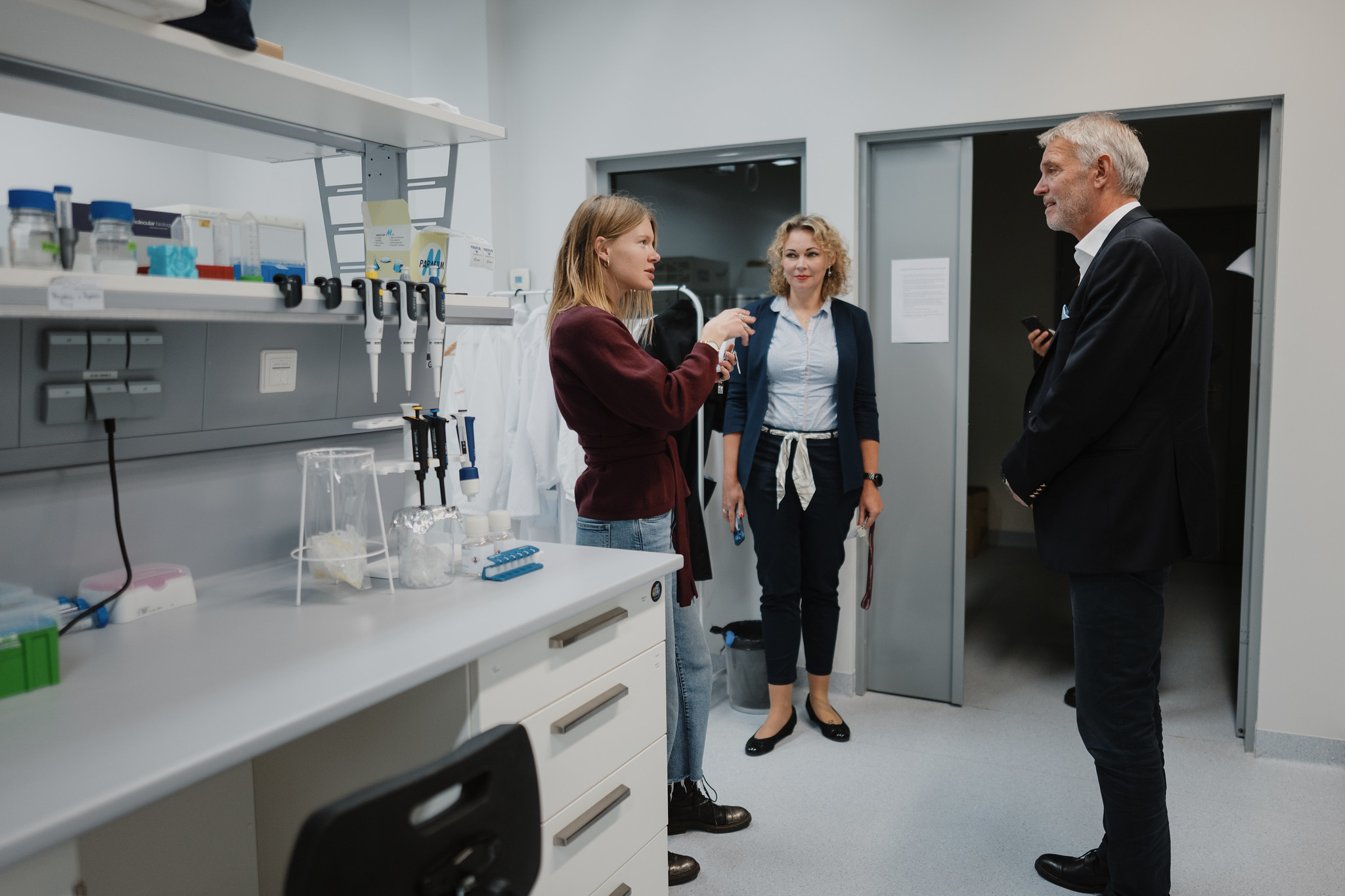Last week, Vilnius University and the VU Life Sciences Center (VU LSC) welcomed a special guest – Professor Johan Åqvist, a Royal Swedish Academy of Sciences member and a theoretical chemistry professor at Uppsala University. Prof. Åqvist is renowned for his groundbreaking work in developing and modeling enzymes using computational tools to understand their behavior under extreme environmental conditions, such as high heat, cold, or pressure.
In his lecture "How Do Enzymes Adapt to Cold?", he explored the principles of enzyme adaptation to cold in unique ectothermic species, focusing on how these enzymes maintain high catalytic efficiency even at low temperatures.
"Johan's lecture was fascinating as it covered organisms at both micro- and macro-levels. While organisms thrive in highly diverse climates, the mechanisms enabling this adaptation function at the molecular level," noted VU LSC researcher Dr. Stephen Knox Jones.
Professor Johan Åqvist was introduced to the LSC by Deputy Director for International Affairs, Prof. Vytautė Starkuvienė-Erfle, and later by LSC Director Dr. Kastis Krikštopaitis, who introduced the professor to the audience and moderated the discussion. After the lecture, Prof. Åqvist joined the LSC leadership team, including the director, the deputy director, and institute directors Prof. Eglė Lastauskienė and Dr. Vytautas Smirnovas, for a private meeting. During this gathering, participants enjoyed coffee and traditional Lithuanian sweets. As a token of gratitude, Dr. Krikštopaitis presented Prof. Åqvist with Jędrzej Śniadecki's book "On Organic Beings," while Prof. Åqvist left a thoughtful message for the future in the LSC guest book.
After his lecture, the guest had the opportunity to explore the VU Life Sciences Center’s state-of-the-art facilities and meet with researchers to learn about their ongoing projects. His visit began in laboratories dedicated to developing and studying gene-editing tools, led by Dr. Stephen Knox Jones and Dr. Patrick Pausch. The tour then continued to Dr. Jorūnė Sakalauskaitė’s laboratory, where her group investigates mollusk pigments and ancient proteins extracted from archaeological samples.
According to Dr. Jones, visits like these by international scientists provide an excellent opportunity to showcase the quality of research, equipment, expertise, and talent at the LSC. They also help foster scientific growth within the VU LSC community, raise the center's international visibility, and promote collaboration with researchers worldwide.
 |
 |
 |
